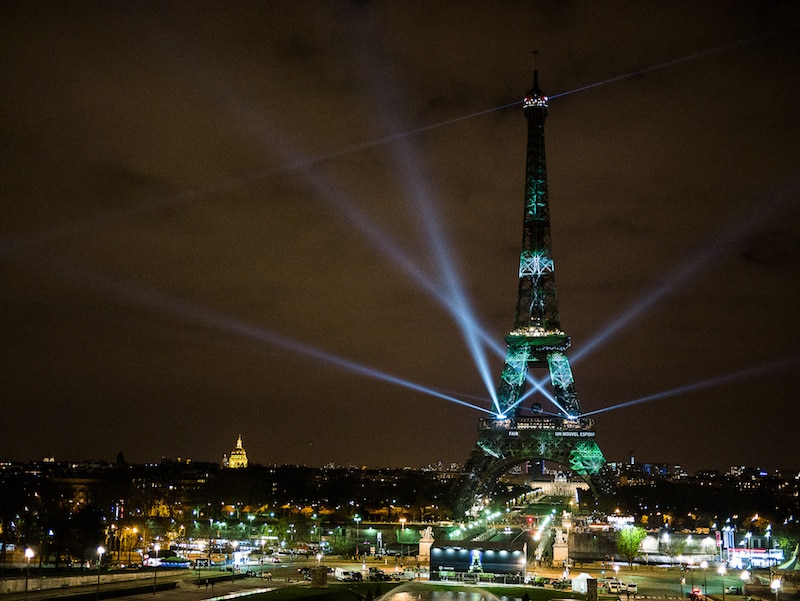UPDATE, 8/15/2016: The media are reporting that the French government is considering a “global initiative” to address the issue of law enforcement access to encrypted messages, and plans to meet with Germany on 23 August. This may signal quick action on this front, since the state of emergency could allow swift passage of new legislation overriding previous protection for encryption. Such actions undermine digital security and human rights and are ineffective. Access Now and our partners oppose all efforts to compromise or undermine encryption at securetheinternet.org. We urge French lawmakers to halt this initiative.
The people of France have been living under a state of emergency since November 2015, shortly after the horrendous terrorist attacks that hit the capital. The state of emergency has since been extended three times, the last time for an unprecedented six-month period set to expire in January 2017. Police and authorities now have vastly expanded powers, and individual freedoms — in particular the rights to privacy and free expression — are under siege.
Here’s a look at what’s happened in France, the laws currently in force, and what’s ahead for digital rights in the lead-up to the French presidential elections in Spring 2017.
State of emergency — a new normal?
The French government and parliament justified the state of emergency after the 2015 attacks by citing security of the state. However, it was then extended for three more months for no obvious reason, and for a second time to ensure security during two major sporting events: the 2016 UEFA Football Championships and the Tour de France. The second extension of the state of emergency was the shortest (two months instead of three) and limited the potential for law enforcement to conduct houses searches, which is typically authorised under a state of emergency.
But hope for an end to the state of emergency was short-lived. On 14 July 2016, France National Day, French President François Hollande announced that he would lift the state of emergency at the end of the month. Little did he know that later that day, France would face yet another horrific attack, resulting in the death of dozens of people in the Southern city of Nice.
Politics in play: security at the heart of presidential campaign
After the Nice attack, it became clear that the state of emergency would be further extended. The French parliament debated the law to extend of the state of emergency, which was initially made up of two articles, in under three days, and members of parliament added 20 more articles after it was finally adopted. Exploiting the urgency of the situation, lawmakers pushed through new counter-terrorism laws and grossly amended the 2015 Intelligence Law without appearing to consider the long-term impact on human rights in France.
The conservative party — les Republicains — has been a driving force behind the exponential increase in the number of articles in the state of emergency law, as well as the additional provisions to the Intelligence Law. This may be an attempt to position the party as the leading voice on security ahead of the upcoming presidential election in Spring 2017. Yet the party appears to be in some disarray: les Republicains have been having a hard time finding a new party leader. Choices include former Prime Minister Alain Juppé, who was convicted for the abuse of public funds, and former President of the Republic Nicolas Sarkozy, who was indicted for the illegal financing of a political campaign. Amidst this distracting political theatre, the French government, currently led by the Socialist party, did not have the political will to fight back against disproportionate, rights-violating measures, instead acting quickly to ensure swift adoption of the text.
What’s in the law?
Here’s a synopsis of the new measures now in place, and how they threaten our rights:
- The state of emergency has been extended for six months, instead of three as originally planned.
- Police have extended powers. For instance, they can carry out identity checks and search luggage and cars without a warrant. Warrantless searches impinge on the basic principle of presumption of innocence and threaten individuals’ freedoms. They must be reconsidered.
- During administrative searches, law enforcement can collect and store personal data and files from electronic devices. This privacy-invasive practice might very well be unconstitutional, as this measure was previously removed in wake of a decision last February by the French Constitutional Council. Its re-introduction is an affront to the rule of law in France.
- Law enforcement can wiretap and surveil not only suspected individuals but also a “close circle” of acquaintances. This is a clear violation of rights: communications and digital surveillance may only be conducted on the basis of suspicion and in compliance with the Necessary and Proportionate Principles.
Looking ahead: Don’t play into false security/privacy dichotomy
If you live in France or plan to visit over the next six months, bear in mind these changes to the law, as they place people who are not under suspicion at risk of human rights violations.
It’s also important to keep in mind that politicians will continue to push policies that depend on the false dichotomy of security versus freedom. In fact, the solution to our security problems is not a simple “either/or” proposition. In the upcoming presidential elections in France, voters should remember that when we create policies built on fear and division, it can lead to ever-ratcheting surveillance powers, with increased government control over the population and curtailing of our fundamental rights and freedoms — without necessarily increasing our security. Instead of pushing to reduce our freedoms, the government should address France’s pressing social issues — such as the creeping racism and xenophobia that feed fear-based policy-making and enable extremist recruitment — and work to protect and promote our rights, on and offline.
Image credit: Yann Caradec
